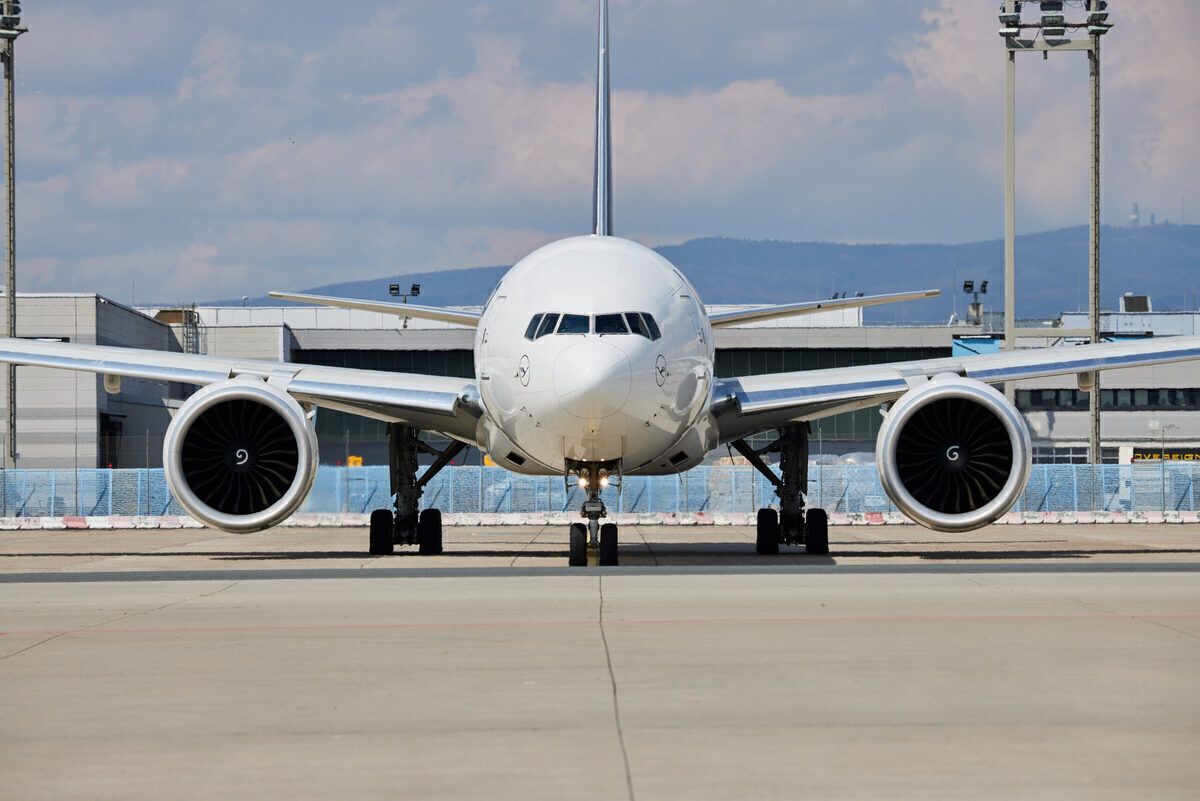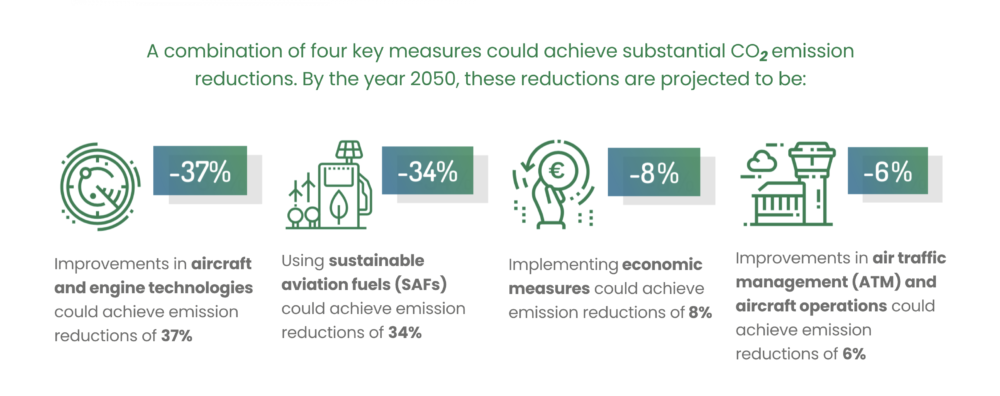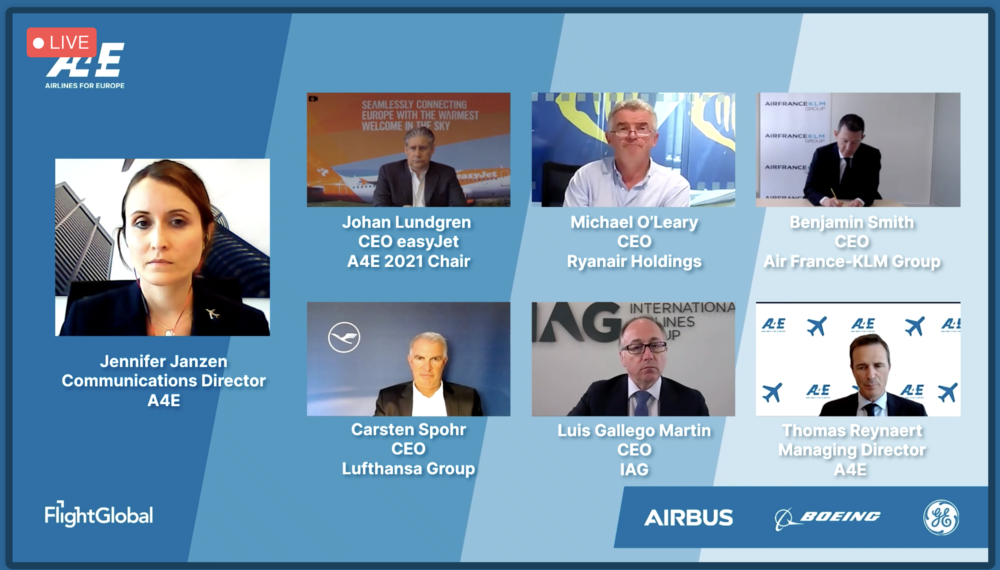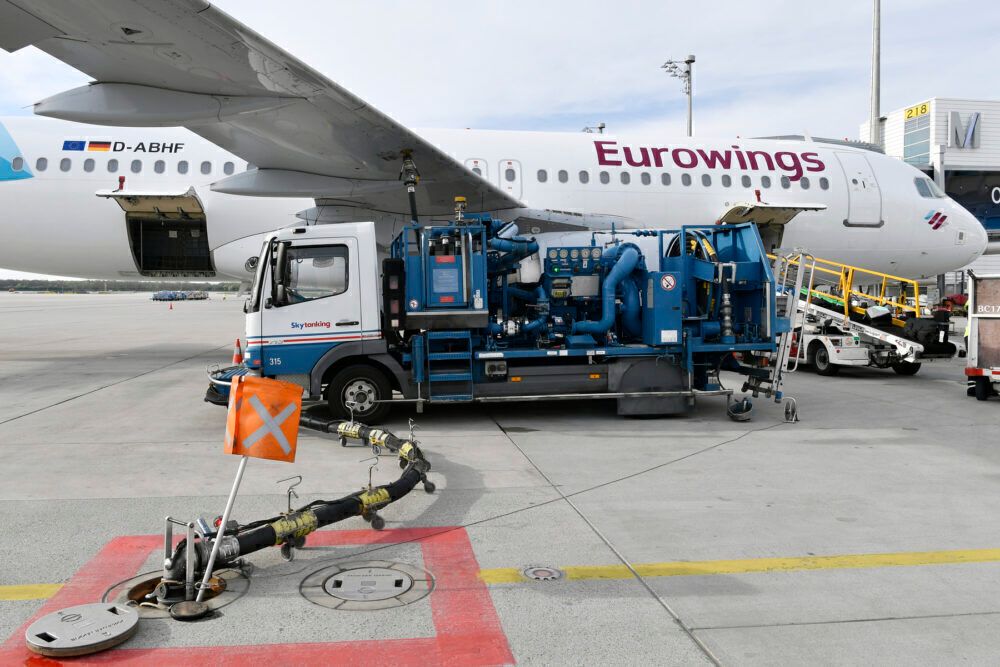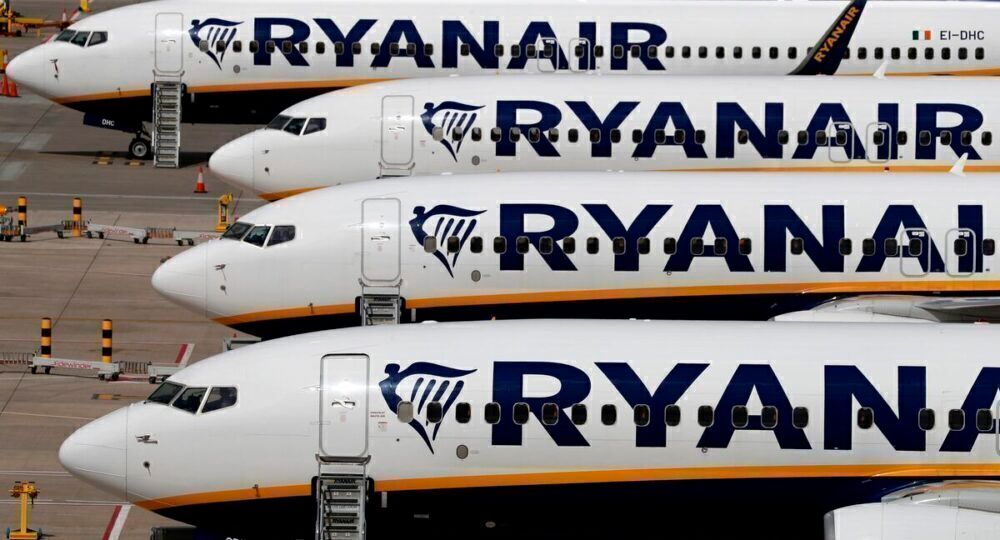Europe’s airlines have committed to achieving net-zero CO2 emissions by 2050. Under their flagship sustainability initiative, Destination 2050, airlines have set out a roadmap to achieving this goal. However, such a radical change will not come cheap, and some CEOs believe it’s the governments that should be footing at least part of the bill.
Keeping the playing field level
At today’s Airlines4Europe (A4E) Aviation Summit, European airline CEOs came together to press home some of the most important challenges facing the industry in the current environment. While touching on the reopening of borders, health passports, the Single European Sky and more, the chiefs were clearly aligned on one key issue – sustainability.
Within Europe, A4E members have signed up to the ambitious goal of delivering net zero CO2 emissions from aviation by the year 2050. Destination 2050 – A Route To Net Zero European Emissions has been supported by a report conducted by the Royal Netherlands Aerospace Centre and SEO Amsterdam Economics, which defined a roadmap to achieving this goal.
According to the roadmap, the bulk of the necessary savings will be achieved through improvements in engine technologies and new aircraft, as well as through the use of sustainable aviation fuel (SAF). Other savings include implementing economic measures and improvements in air traffic management.
CEO of Lufthansa, Carsten Spohr, noted that the transition to SAF and ongoing fleet renewal would come at a high costs to the airlines. As such, he said that the government should step in to ensure European airlines are not put at a disadvantage over competitors who are not investing at the same levels. He said,
“It is key that these efforts of ours are not distorting competition more than it already has, or in a way that what we do will eventually help others who do less to be more competitive, those outside of Europe. That would be awkward. This is something we couldn't accept, and we wouldn't be willing to do. So it's very important that the level playing field is achieved, or maintained, where it already exists.”
Taking this a step further, Spohr intimated that governments should financially support airlines, either through subsidizing fleet renewals or supporting investments in SAF. Spohr continued,
“Secondly, that governments support industry investments, be it in fleet renewal or be it in sustainable aviation fuels, where it just cannot be done by the industry alone. And third, that governments, and regulatory bodies also stimulate further investments in new technologies, innovation, against sustainable aviation fuel, where a lot has to be done.”
Stay informed: Sign up for our daily and weekly aviation news digests.
No supply of SAF
For the airlines to transition to a net-zero operation in the next 30 years, there needs to be a comprehensive and affordable supply of SAF across the continent. Ryanair Group CEO Michael O’Leary noted that, if it were available today, airlines would switch immediately. He said,
“We’re all signed up to very aggressive, very ambitious environmental targets, both for 2030 and for 2050. We do need government support … the big challenge facing our industry is going to be the availability of sustainable aviation fuels. We would all want to use them now but there's almost practically no supply of sustainable aviation fuels.”
However, O’Leary is a staunch opponent of state support, having successfully campaigned to reverse plans to grant aid to German airline Condor. As such, he could not agree with Carsten that taxpayer money should be used to fund SAF or fleet renewal, but said that there was more to be done. He commented,
“I would clearly disagree with Carsten and others as to whether we should do that from our own resources or whether we should get to receive government support, but there's no doubt in my mind, and I think we're all in agreement, that the government can and should do more.”
Boss of British Airways and Iberia owner IAG, Luis Gallego, noted that, without government support to develop the infrastructure necessary for widespread availability of SAF, the 2050 targets would be impossible to reach. He said,
“All of us are investing in new technology and that is the best thing we can do in the short term. But also, we need help from the different governments to have enough sustainable aviation fuel, and also to have the sustainable aviation fuel at the right price, because otherwise it's going to be impossible to arrive to the commitments that we have.”
But with governments facing their own economic challenges following the COVID crisis, putting their hands in their pockets for sustainable aviation initiatives might be a tall ask at present.

